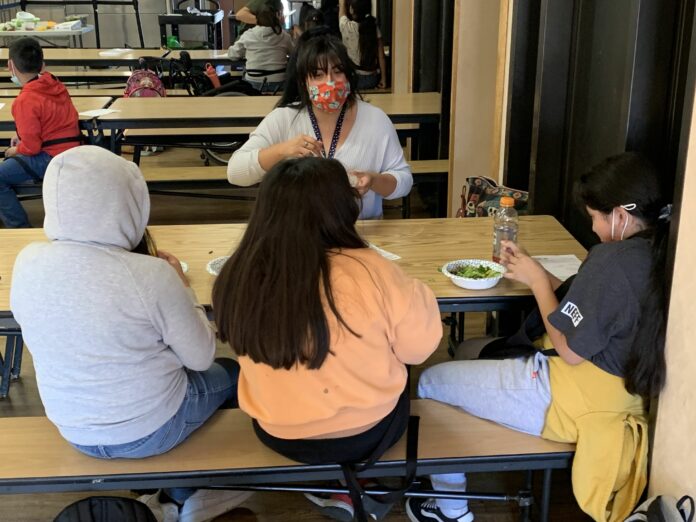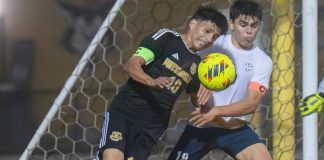Fifth-grade students gathered at tables in Starlight Elementary’s multipurpose room one day in November, laughing with excitement and expectation, as they experienced new foods and recipes.
More importantly, they were discovering new flavors and textures and alternatives to their traditional diet through the “Cooking Club,” an initiative from Second Harvest Food Bank, Pajaro Valley Unified School District (PVUSD), LifeLab and Second Harvest interns from Americorp.
On that day, the recipe was “Delicious Nachos” made with vegetables and mashed beans with green onions. Workshop recipes are printed in English and Spanish as student takeaways. Beyond just tasting something new, the students were learning to become more “food literate,” says Delia Bernal, Second Harvest Food Bank’s manager of nutrition education.
“Food literacy means becoming curious about the nutritional value of food and a healthy lifestyle,” she said. “With the elementary students, our emphasis is on offering them new taste alternatives and getting them out of their comfort zone by trying new vegetables, fruits and spices.”
The result, Bernal says, “is a change from ‘I don’t like this,’ (without even trying it) to ‘It’s actually not bad.’ It’s about opening new doors to diet and health for them and helping students to think beyond flavor.”
The twice-monthly after-school workshops run for six months. The program aims to encourage students to become part of their kitchen at home and make healthier food shopping choices.
“It enables children to teach their parents how to break the cycle of pre-diabetic eating and diabetes,” says Josue Barajas, chief programs officer at Second Harvest. “It’s about creating greater awareness of what they’re putting in their bodies.”
The program grew out of conversations between Bernal and Linda Liu, PVUSD’s director of food and nutrition services. They realized they needed to get involved in improving the food that was going into students’ lunch bags and how to offer new options, which are not pizza, cookies or burgers.
“LifeLab is an important part of the Cooking Club at Starlight by bringing their depth of expertise in working with kids in the garden learning about food, planting and nutrition,” Bernal said.
The program, initiated last year, was cut off by pandemic restrictions and school closures. Now it’s back on track with a strengthened team.
Renteria recalled a victory while the students were preparing nachos. One student decided to put broccoli and another veggie on his nachos. Then he picked up the red bell pepper, looked at it, and claimed he wouldn’t add it to his nachos because he “hated bell peppers.”
But Renteria encouraged him to add just a little bit to the nachos. He said he would add one piece and proceeded to put one tiny piece of bell pepper on top of his nachos.
“But I applauded it,” she says. “After a little while, as we were discussing the different stages and colors of bell peppers with him and other students, he grabbed the little red piece he had put on his pile of nachos and ate it. He nodded and made an approving sound and told me it was sweet, with a surprised expression. I nodded and affirmed that it can be sweet. He then proceeded to sprinkle a little more on his plate.”










